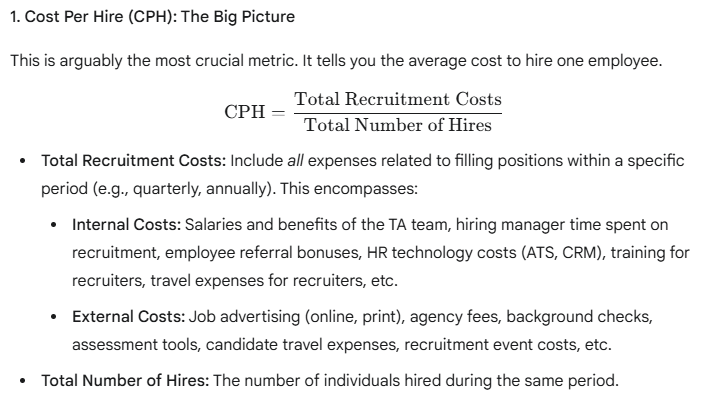Behavioral Interview Questions: The Double-Edged Sword of Past Performance
- AZ Occupancy Solutions

- Apr 30
- 4 min read

In the competitive game of talent acquisition, the behavioral interview stands as a widely adopted strategy. The underlying logic – that past behavior is a reliable predictor of future performance – is intuitively appealing. By prompting candidates to recount specific experiences, we aim to unlock tangible insights into their skills, competencies, and overall suitability.
However, to either blindly embrace these anecdotes as definitive truth or to dismiss their inherent value entirely is to court flawed hiring decisions and squandered opportunities. The key lies in understanding the double-edged nature of this powerful tool.
Pros of Utilizing Behavioral Interview Answers
The enduring popularity of behavioral interviews stems from their genuine strengths when implemented thoughtfully:
Predictive Potential: At its core, the principle holds: how a candidate acted in the past offers a tangible glimpse into how they might behave in similar future situations within your organization. This is particularly valuable for assessing practical application of skills.
Enhanced Objectivity: By focusing on concrete examples and factual accounts of past actions, behavioral questions can mitigate interviewer bias, shifting the evaluation towards observable behaviors rather than subjective impressions of personality or potential alone.
Illuminating Soft Skills: These inquiries excel at revealing crucial interpersonal attributes such as communication, teamwork, problem-solving, adaptability, and leadership – qualities often elusive in theoretical discussions or skills-based assessments.
Driving Specificity: Unlike open-ended or hypothetical questions, behavioral prompts compel candidates to delve into the "when," "where," and "how" of past situations, providing richer and more detailed insights into their approach.
Challenging "Rehearsed" Generalities: While preparation is possible, the necessity of recalling specific scenarios and actions makes it more difficult for candidates to rely solely on generic, polished responses, demanding a more authentic reflection of their experiences.
Facilitating Consistent Evaluation: A well-defined set of behavioral questions ensures that all candidates are assessed against the same criteria, fostering a more equitable and standardized comparison across the applicant pool.
The Perils of Uncritical Acceptance: Cons of Over-Reliance on Behavioral Interview Answers
Despite these compelling advantages, an uncritical reliance on behavioral interview answers as the sole determinant of a candidate's future success carries significant risks that organizations must acknowledge.
This is particularly evident when examining common behavioral questions:
The Recall and Articulation Barrier (Illustrated):
A typical question is, "Tell me about a time you failed."
While intended to assess self-awareness, a candidate might choose a minor, low-stakes failure and articulate a seemingly insightful lesson learned. However, this doesn't truly reveal their capacity to handle significant setbacks or their accountability in high-pressure situations. A less articulate but highly competent individual might struggle to structure their response effectively, masking their genuine resilience.
The Specter of Exaggeration and Fabrication (Illustrated):
A common inquiry is, "Describe a situation where you had to work with a difficult colleague."
A candidate might present a polished narrative where they were the sole voice of reason and the colleague entirely unreasonable. This doesn't necessarily reflect their actual ability to navigate complex interpersonal dynamics or their own potential contribution to the difficulty. A smooth talker can fabricate a seemingly diplomatic resolution without revealing underlying passive-aggressive tendencies.
The Neglect of Future Adaptability (Illustrated):
Asking, "Give me an example of a time you had to handle a stressful situation," aims to gauge composure.
However, a candidate might describe a past stressful event that is fundamentally different in nature and intensity from the stressors of the target role. Their successful navigation of a minor deadline crunch doesn't guarantee their ability to handle high-stakes, long-term pressure or unexpected crises.
The Echo Chamber Effect (Illustrated):
The question, "Tell me about a time you had to lead a team," seeks to assess leadership skills.
However, a candidate might describe leading a highly motivated, self-directed team where minimal actual leadership was required. This doesn't necessarily indicate their ability to inspire and guide a struggling or diverse team through challenging circumstances.
The "Gaming the System" Phenomenon (Illustrated):
When asked, "Describe a time you went above and beyond for a customer," a well-prepared candidate might recount a textbook example using the STAR method.
However, this doesn't guarantee a genuine customer-centric mindset or consistent dedication to exceeding expectations. It might simply reflect their ability to recall and structure a suitable anecdote.
A Balanced Perspective: Integrating Behavioral Insights with Holistic Assessment
The behavioral interview remains a valuable tool in the talent acquisition arsenal. However, its effectiveness hinges on a balanced and critical approach. Organizations must recognize that these interviews provide one crucial data point, but not the complete picture. To navigate the double-edged sword effectively, a holistic assessment strategy is essential, incorporating:
Integration with Diverse Evaluation Methods: Combining behavioral questions with skills-based assessments, situational judgment tests, technical evaluations, and thorough reference checks offers a more comprehensive understanding of a candidate's capabilities and potential.
Crafting Strategic Behavioral Questions: Focusing on questions directly relevant to the core competencies and challenges of the specific role maximizes the value of the insights gained.
Considering the Context of Past Experiences: Understanding the specific environment, resources, and constraints of a candidate's previous roles is crucial for accurately interpreting their actions and results.
Assessing Future Potential Directly: Incorporating questions and assessments designed to gauge a candidate's learning agility, adaptability, and problem-solving skills in novel situations is vital.
By embracing a nuanced understanding of both the merits and the pitfalls of behavioral interviews, organizations can move beyond a simplistic reliance on past performance. This balanced perspective allows for a more informed and effective hiring process, one that identifies not just those who have performed well in the past, but those who possess the diverse skills, adaptability, and future potential to drive organizational success. Ignoring either side of this equation risks making costly hiring mistakes and missing out on truly exceptional talent.



コメント